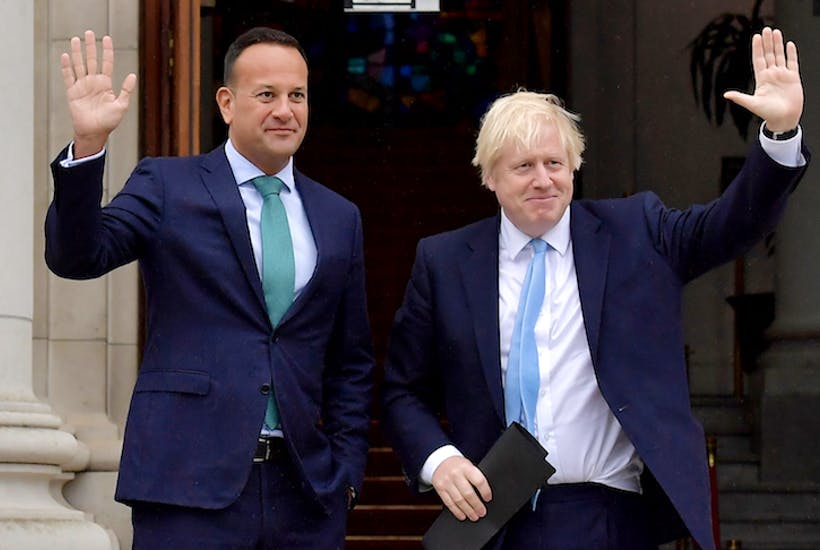Leo Varadkar did not pull any punches in his interview with BBC Political Editor Laura Kuennsberg on Monday. Embroiled in a general election campaign, with less than two weeks to go until polling day, the incumbent Taoiseach told Kuennsberg that Britain is underestimating the difficulties that lie ahead as phase two of Brexit gets underway:
‘I think the reality of the situation is that the European Union is a union of 27 member states, the UK is only one country, and we have a population and a market of 450 million people. The UK is about 60 [million]. So if these were two teams up against each other playing football, who do you think has the stronger team?…’I don’t think the UK has yet come to terms with the fact it’s now a small country’
Varadkar has rarely shied away from making his position on Brexit clear – and from day one nailed Ireland’s colours to the mast as a fervently pro-European country that believes in the strength of the bloc to protect the interests of its smaller member states.
But as Varadkar’s party Fine Gael struggles in the polls, it is no coincidence that he has put his record on Brexit front and centre of his campaign: Fine Gael has prioritised Brexit on its candidates’ literature ahead of their other manifesto promises on climate action and tax reform.
Over his tenure, Varadkar has enjoyed regular boosts to his personal approval ratings whenever he’s been portrayed as central to any kind of Brexit breakthrough. After Varadkar met Boris Johnson in the Wirral after Conservative party conference last year and the pair managed to resolve what seemed like an intractable issue over the Irish border, Varadkar’s approval ratings rose a staggering 15 points, from 36 in May to 51 in October. Similarly in January 2018, just after the backstop was secured with Theresa May in late December, Brexit had a similar effect.
The Irish electorate – though it may be losing faith in the government now – largely approved of Varadkar’s approach, seeing their leader on the world stage making Ireland’s case against what most perceived to be a damaging Brexit.
It is important to remember that as Dublin-born Fine Gael politician, Varadkar is more likely to be criticised by sections of the electorate as a ‘West Brit’, cowing too much to the United Kingdom. So it helps him – within reason – to be gently critical of the British approach to Brexit while championing the European Union, which is popular in Ireland. However, he is careful to strike a balance: outright condemnation or reproval of the UK would see him aping the kind of language more befitting of Sinn Féin than the moderate sensibilities of Fine Gael in its modern incarnation.
But reports from the doorstep indicate voters are now largely uninterested in Brexit – it seems to many that the Conservative mantra of ‘Get Brexit Done’ has travelled across the Irish sea and convinced voters the matter is put to bed. Or, at least, is no longer a pressing concern.
Varadkar and his deputy Simon Coveney have persisted with the Brexit messaging, arguing that there is still a long way to go in the negotiations. An Instagram post just one day into the campaign read ‘We’re only at half time in Brexit. I’m asking you to stick with the winning team’.
Unfortunately for Fine Gael, the electorate is preoccupied with other questions. Though most of Varadkar’s tenure has been taken up with choreographing Ireland’s position in an increasingly febrile Brexit landscape, the ongoing general election is simply about far more than that.
After nearly ten years in power, and despite Ireland’s strong economy, the electorate is itching for change. Long-held grievances over health and housing are eclipsing Brexit – no matter how much the public might approve of Varadkar and Coveney’s work in Westminster and Berlaymont over the past three and a half years.
Varadkar – whom the UK media love to criticise as a naive upstart, and a lackey of the European Union – was in fact quite popular for his defence of the backstop and the European Union. But Fine Gael will have to do more to hold onto power for a third consecutive time.






Comments